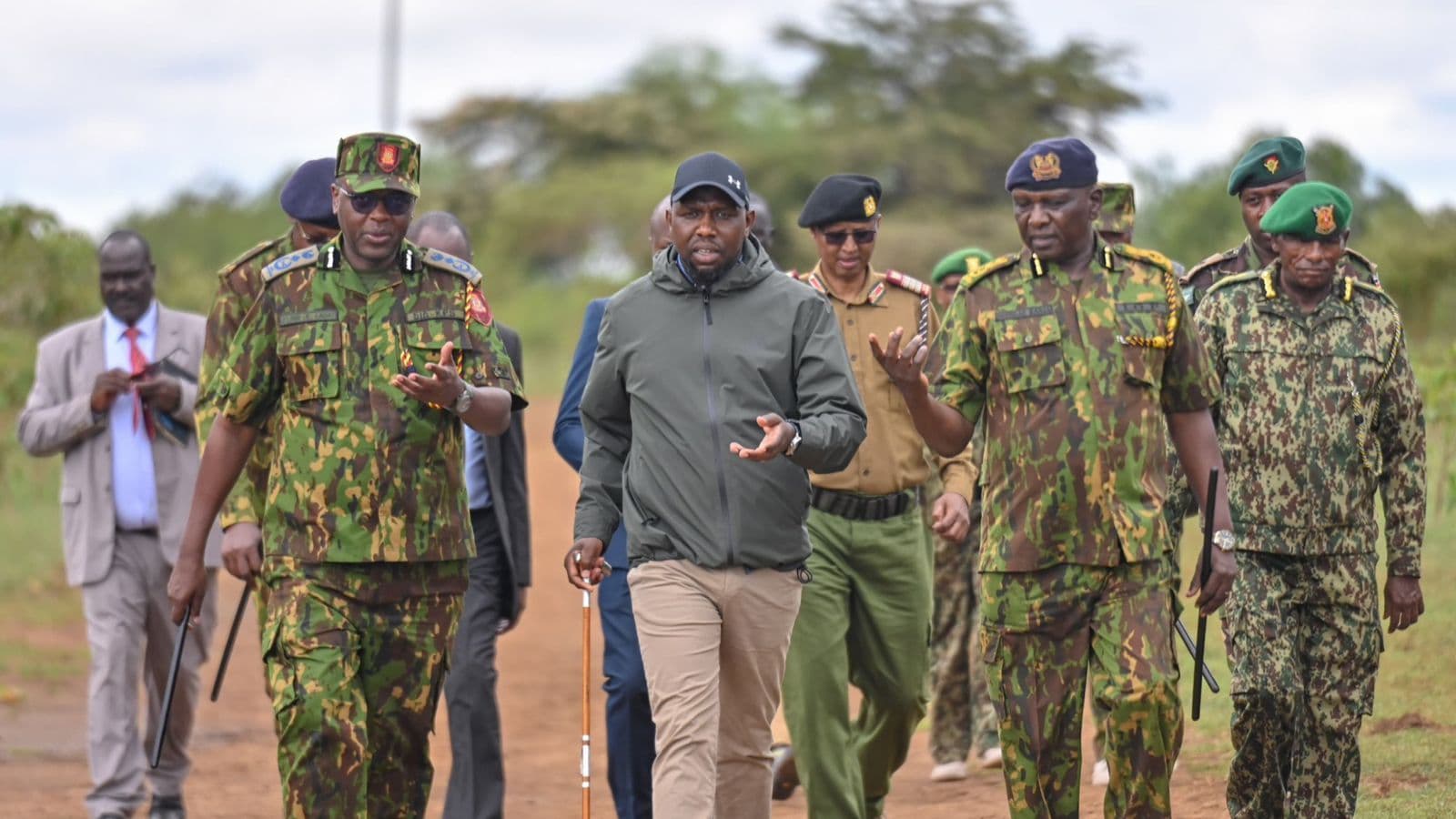We're loading the full news article for you. This includes the article content, images, author information, and related articles.
A multi-agency security operation, 'Operation Maliza Uhalifu,' has brought relative calm to Kenya's North Rift region, allowing communities to rebuild and resume normal life after years of insecurity.

Residents in Kenya's North Rift region are experiencing a period of relative calm, with communities in areas like Baringo County beginning to rebuild their lives and businesses. This follows intensified efforts by the government's multi-agency security operation, dubbed 'Operation Maliza Uhalifu,' which has focused on tackling banditry and livestock rustling.
The improved security situation was notably celebrated in Baringo County during this year's Mashujaa Day on Sunday, October 20, where security personnel were honoured for their dedication in restoring peace. Local leaders have commended the officers, acknowledging the return of normalcy to previously volatile villages.
Banditry and cattle rustling have plagued Kenya's Arid and Semi-Arid Lands (ASALs), particularly the North Rift, for decades. Counties such as Turkana, Baringo, West Pokot, Elgeyo Marakwet, Samburu, and Laikipia have been most affected. Historically, cattle rustling was a cultural practice among pastoral communities, often used to replenish diminishing stocks or for dowry payments. However, it has evolved into a more organised and violent criminal enterprise, exacerbated by the proliferation of modern weaponry like AK-47s and M-16 rifles.
The conflict is driven by several factors, including competition over scarce resources like water and pasture, especially during prolonged droughts, political incitement, land disputes, and the easy availability of illegal firearms from porous borders with neighbouring countries like South Sudan and Uganda. The National Police Service estimates that 82 security personnel lost their lives to bandits between 2012 and 2022.
The Kenyan government has implemented various interventions to curb banditry. In 2022 and 2023, curfews were imposed in banditry-prone counties, and these areas were declared disturbed and dangerous. President William Ruto, in February 2023, ordered a major security operation involving both the National Police Service and the Kenya Defence Forces (KDF) to disarm bandits and recover illegal firearms. Interior Cabinet Secretary Kithure Kindiki has consistently stated the government's commitment to eradicating banditry and cattle rustling.
Efforts to strengthen the legal framework have included proposed amendments to the Penal Code in 2016 and 2021, suggesting stiffer penalties for cattle rustling, including up to 15 years imprisonment or even the death penalty. Another Bill in 2023, the Prevention of Livestock and Produce Theft Bill, proposed life imprisonment for using violence in livestock theft. However, these bills have not yet been passed into law.
The 'Operation Maliza Uhalifu' involves not only specialised security units but also engages local communities in dialogue and aims to mop up illegal firearms. This multi-agency approach, which includes the KDF and National Police Service, has also focused on community-based peacebuilding, constructing and refurbishing schools, and providing humanitarian aid. Local elders and residents have expressed appreciation for the security personnel's role in creating a peaceful environment.
Despite the successes, challenges persist. Some critics have raised concerns about potential human rights violations during security operations. The porous borders continue to facilitate the flow of illegal weapons, and patronage networks remain a concern. The government also plans to provide alternative livelihoods to reformed bandits and compensate victims of banditry and drought.
Banditry has severe socio-economic implications, leading to loss of life, displacement of people, disruption of education, increased poverty, and an unfavourable business environment. The closure of schools and instilling fear in learners and teachers significantly impact literacy levels. The ongoing violence also strains inter-communal relations and erodes trust in government institutions.
While the government's multi-agency approach has shown promising results, the long-term sustainability of these gains remains to be seen. The effectiveness of reintegration programs for former bandits and the consistent funding required for such initiatives are crucial. The issue of rogue officers allegedly supplying ammunition to bandits has also been highlighted, with some arrests made.
Since December 2024, the government has implemented a layered strategy combining military operations with reform, accountability, and community peacebuilding. The 'Operation Maliza Uhalifu' is being extended to Marsabit, Isiolo, Baringo, Samburu, and Turkana counties. The government plans to compensate victims of banditry and drought, with beneficiaries to be identified in 16 affected counties.
Observers will be watching for the sustained implementation of the multi-agency strategy, particularly the effectiveness of community engagement and alternative livelihood programs. The passage of proposed legislation to classify banditry as terrorism and impose harsher penalties could also significantly impact future efforts. Furthermore, addressing the root causes of banditry, such as resource scarcity and political incitement, will be key to achieving lasting peace.
Previous reports have detailed the devastating impact of banditry on education, livelihoods, and the displacement of communities in the North Rift. The role of climate change in exacerbating resource conflicts has also been a recurring theme.
Keep the conversation in one place—threads here stay linked to the story and in the forums.
Sign in to start a discussion
Start a conversation about this story and keep it linked here.
Other hot threads
E-sports and Gaming Community in Kenya
Active 9 months ago
The Role of Technology in Modern Agriculture (AgriTech)
Active 9 months ago
Popular Recreational Activities Across Counties
Active 9 months ago
Investing in Youth Sports Development Programs
Active 9 months ago